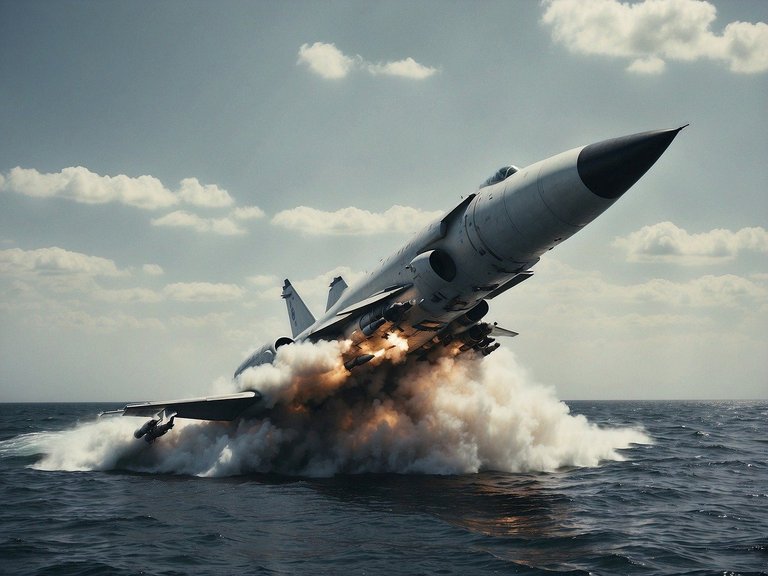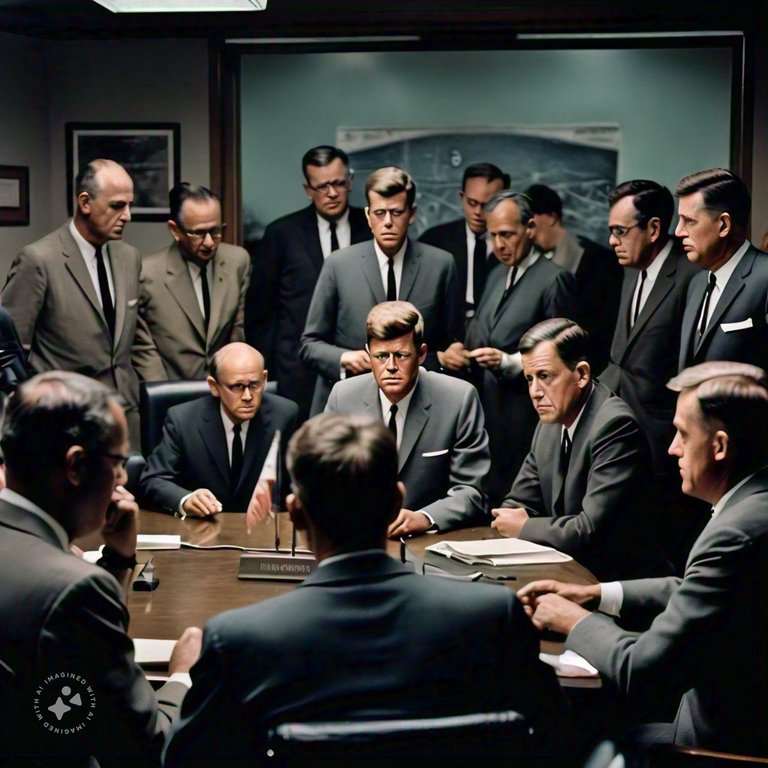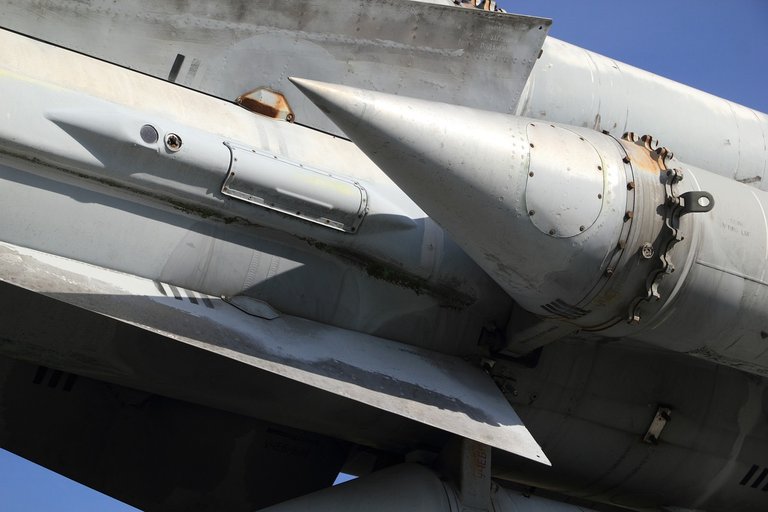The Cuban Missile Crisis: A Pivotal Moment in Cold War History.
 source
source
Hello everyone good evening and welcome to my blog. It's @imaima and today I'll be writing on one of the key events that transpired during the cold war. It's the Cuban missile crisis.
Cuban Missile Crisis is one of the most pointed confrontation of Cold War, which was the period characterized by intense international relations between US and USSR. This incident in October 1962 lasts for 13 days and came close to triggering a nuclear war demonstrating that diplomacy of the nuclear age is a highly unstable game.
Background and Context
The fundamentals of the Cuban Missile Crisis had been earlier sown during the Cold War. Following the revolution led by Fidel Castro in the year 1959, Cuba becomes an ally of the Soviet Union which had an aggressive impact on United States since they were always against the movement led by a communist government in any country and Cuba being an island was a threat beside being close to United States. In addition, the tensions reached another peak in April, 1961 when an invasion of Cuba at the bay of pigs, supported by the US to overthrow Castro, failed.
As a result of this threat and in an attempt to increase his strategic strength, Soviet Premier Nikita Khrushchev decided to place nuclear missiles in Cuba. If was meant to balance U.S. missiles deployed in Turkey and Italy and to enhance support to an ally of the Americas.
The Crisis Unfolds
The cold war crisis started on October 14, 1962 when an American U-2 spy plane buzzed Cuba and photographed what appeared to be the construction of Soviet missile installations. The discovery was alarming: with these missiles, much of the United States could be hit in minutes, producing a complete shift in balance.
In his office, the American President John F. Kennedy and his closest associates found themselves before a choice. They could stand by idly, thereby giving the Soviet Union a green light and encouraging Castro as well; or they could do something. After much deliberation, Kennedy chose a middle path: he ordered an embargo or a “quarantine” of Cuba through the seas to stop further arrival of Soviet supplies of arms.
 source:Meta AI
source:Meta AI
The Standoff
Conflict situation worsens and the whole world just sit and watch the events unfolding. Through his memoirs and letters, documents and speech, Khrushchev insisted that the US must remove its missiles from Turkey and Greece, in return for global Soviet withdraw from Cuba. United States military forces were on ‘hair trigger’ alert, an unintentional engagement was all too possible. Kennedy and Khrushchev exchanged messages indirectly, and thus arrived at an agreement that would prevent the two superpowers from going to war.
In return for this, on October 28, 1962 Khrushchev declared Soviet missiles to be removed from Cuba and, as for Kennedy, he agreed to remove the U. S. missiles from Turkey and Italy. Thus, this decision ended the immediate confrontation, but relations of rivalry between the two superpowers continued.
Legacy and Impact
The Cuban Missile Crisis influenced the relations between countries and changed the approach to military operations. He stressed risks of nuclear escalation and the necessity of the direct dialogue between the superpowers. Thus, the crisis made both, the U. S. and the Soviet Union realize the necessity of improving the channels of communication, which resulted in the initiation of the creation of Washington-Moscow Hot Line, or direct line of communication to avoid similar occurrences.
Furthermore, the problem paved the way to the recognition of arms control treaties. In 1963 the treaty to ban the explosion of nuclear weapons in the atmosphere, underwater in space was signed marks the start of a series of agreements that disengaged the nuclear arms race.
Having looked at the events associated with the Cuban Missile Crisis it can be concluded the spectacle was quite telling in terms of the instabilities of the Cold War period to pay a tremendous amount of importance to diplomacy as the tool for keeping peace on the international level. Thus, the episode remains one of the most critical examples of how humans got too close to full-scale nuclear war and why there is still the need for a cautious and gradual handling of the global conflicts.
When thinking about Cuban Missile Crisis, it’s important not only to remember the lesson learnt and the danger which involved the two superpowers of the world but to know that even the most dangerous situations can be solved by the means of negotiations and restraint.
Thank you for stopping by.
Feel free to reblog, up vote and guys please don't forget to drop a comment.
@imaima.
Posted Using InLeo Alpha

Congratulations @imaima! You have completed the following achievement on the Hive blockchain And have been rewarded with New badge(s)
Your next target is to reach 1750 replies.
You can view your badges on your board and compare yourself to others in the Ranking
If you no longer want to receive notifications, reply to this comment with the word
STOPCheck out our last posts: